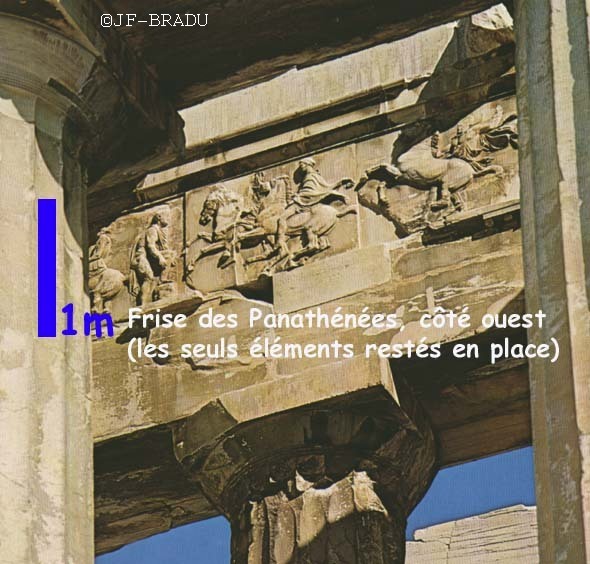|
The
temple of Parthenon, of Doric order, has two friezes of different style:
-
an outdoor frieze of Doric
style (see
previous pages)
-
an indoor frieze of Ionic
style, very
famous for it depicts the procession of the Panathenaea.
The
Panathenaea are celebrations in honour of the goddess of the city, Athena.
Every four years, these feasts were given extra glamour. (the grand
Panathenaea). The Athenians used to organise a three day festival with
athletic and musical competitions. On the fourth day, a long procession
used to move along the sacred path, starting from Ceremica, through Agora
and up the slopes of Acropolis (see
map);
young girls (the Ergastines) would carry “ the peplos”, in order to
array the old wooden statue of Athena with. It was a sacred cloak, wowen
by the “arrhephoroï”( little girls chosen among the high society of
Athens). The frieze of Panathenaea was done according to the instructions
of the most famous sculptor, Pheidias. These sculptures are considered as
the greatest work of art of all times. Unfortunately, there are only a few
slabs left on the west side of the Parthenon.(photo below and following
ones). The others have been dispersed . Twenty of them are to be found in
the museum of the Acropolis, one in the “Louvres” in Paris and the
rest (most of them) in the British Museum (London). |
